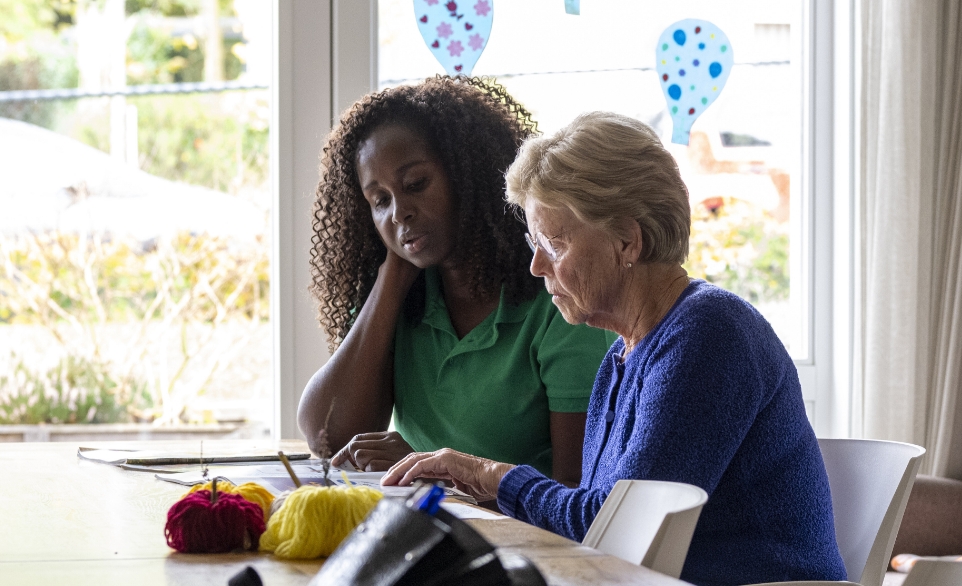
You’re the one everyone looks to.
The problem-solver. The vision-holder. The firefighter.
You’ve got people depending on you—clients, staff, commissioners, family. And somewhere in that never-ending to-do list, you disappeared.
This is CEO burnout. And it’s real.
Especially in care.
At Big Sister, we work with founders every day who are on the edge of exhaustion. Brilliant, committed women (and men) who have built something they deeply care about—but are quietly running on empty. If that’s you, this blog is your wake-up call and your support plan, all in one.
What Burnout Really Feels Like
Let’s get honest. Burnout doesn’t always look like a breakdown.
Sometimes it looks like:
- Snapping at your staff over something small
- Dreading your inbox but feeling guilty if you don’t respond
- Starting 10 things and finishing none
- Constantly questioning if you’re “cut out” for this
- Not sleeping well, not eating well, and definitely not switching off
In care, where the stakes are high and the emotional load is heavy, burnout can creep in quietly. But left unchecked, it doesn’t just damage you—it affects your clients, your team, and your business.
Why CEOs in Care Are Especially Vulnerable
Burnout is more common among care business owners than most realise. Here’s why:
-
Emotional Labour
You’re not just running a business. You’re often supporting vulnerable people and managing complex family dynamics. That takes a toll.
-
Isolation
Even if you have a team, the weight of leadership can feel incredibly lonely. You carry the hard decisions. The blame. The pressure to keep everything afloat.
-
Constant Crisis Mode
Staffing shortages, safeguarding concerns, unexpected inspections—these become your normal. But living in permanent “reactive mode” leaves no space for recovery.
-
Founder Guilt
Many founders overwork because they care deeply. You didn’t just start a business—you started a mission. But that makes it hard to set boundaries. You convince yourself: “If I don’t do it, who will?”
How to Spot the Signs (Before You Crash)
At Big Sister, we train our Founder’s Circle members to monitor themselves as closely as they do their KPIs.
Here are the early warning signs to look out for:
- You stop celebrating wins
- You can’t remember the last time you felt rested
- You start resenting the business you once loved
- You avoid tasks you used to handle with ease
- Your creativity dries up
If you nodded to any of these, it’s time to act.
Step-by-Step: What to Do If You’re Burnt Out
-
Call it What It Is
Burnout isn’t weakness. It’s not laziness. It’s a physiological and psychological response to prolonged stress. Acknowledge it. Name it. Own it. That’s your power move.
-
Audit Your Energy
Where is your energy being spent? Where is it being drained? Make a list:
- What lifts me up?
- What drags me down?
- What do I avoid every day?
You can’t fix what you don’t see.
-
Delegate Like Your Life Depends On It
Because sometimes—it does.
Start handing over the things only you think only you can do. Whether it’s rotas, invoicing, or social media, someone else can do it (and probably better, once trained). This is the first step toward healing.
-
Rebuild Your Support System
Join a mastermind. Hire a coach. Lean on Founder’s Circle.
You need people in your life who understand this world. People who can say:
“Me too. Let’s get through this together.”
-
Reset the Pace
You’re allowed to slow down. Even pause.
Taking a breather is a strategic decision, not a step backward. If you burn out completely, there may be nothing left to come back to. Give yourself the time to reset your rhythm.
Building a Burnout-Proof Business
At Big Sister, we don’t just help you build a successful care company—we help you build one you can survive and enjoy.
Here’s how we teach Founder’s Circle members to protect their energy long-term:
- Set Non-Negotiables: Time off, exercise, family dinners—put them in your calendar like client meetings.
- Use Your Team: You hired them for a reason. Empower them.
- Create Repeatable Systems: The more you systemise, the less you stress.
- Outsource the Extras: Bid writing, design, compliance—don’t wear 10 hats. Wear one well.
- Check in With Yourself Weekly: Leadership isn’t about being unbreakable. It’s about being aware.
Your Mental Health Is a Business Priority
Too often, CEOs ignore their own wellbeing in the name of keeping the business running. But your mental health isn’t a luxury. It’s an essential asset. When you feel grounded, the decisions are clearer, the relationships stronger, and the results better.
You’re not just the owner. You’re the heartbeat.
Take care of it.
Want More Help?
We’re now sharing real, raw, practical conversations on how to manage burnout and build sustainable businesses on our YouTube channel:
@BigSisterCare
We talk about:
- Burnout recovery
- Founder guilt
- Boundaries with staff and clients
- Scaling without breaking
If you’re feeling overwhelmed, exhausted, or like you’re hanging on by a thread—you’re not alone.
We’ve been there. We’ve supported hundreds of women through it. And we’ve built a community to make sure you’re never left to figure it out alone again.
Final Words
Burnout doesn’t mean you’ve failed. It means you’ve been giving too much for too long. The solution isn’t to push harder—it’s to pause, re-align, and rebuild with support.
Your business matters. But so do you.













